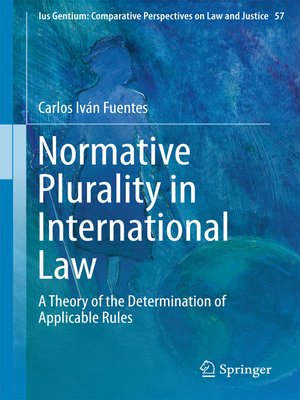Normative Plurality in International Law
ebook ∣ A Theory of the Determination of Applicable Rules · Ius Gentium: Comparative Perspectives on Law and Justice
By Carlos Iván Fuentes

Sign up to save your library
With an OverDrive account, you can save your favorite libraries for at-a-glance information about availability. Find out more about OverDrive accounts.
Find this title in Libby, the library reading app by OverDrive.



Search for a digital library with this title
Title found at these libraries:
| Library Name | Distance |
|---|---|
| Loading... |
This book provides a theoretical framework for explaining the choices made by international decision-makers in terms of what constitutes law. It comprehensively analyzes the practice of human rights courts in applying legal instruments outside their competence and proposes that this practice recognizes that different normative instruments coexist in an un-ordered space, and that meaning can be produced by the free interaction of those instruments around a problem. Based on this, the book advances its normative plurality hypothesis, which states that decision-makers must survey the acquis of international law in order to identify all the instruments containing relevant normative information for a particular situation. The set of rules of law applicable to the situation must then be complemented with other instruments containing specific normative information relevant to the situation, resulting in a complete system of norms advancing a common purpose.







